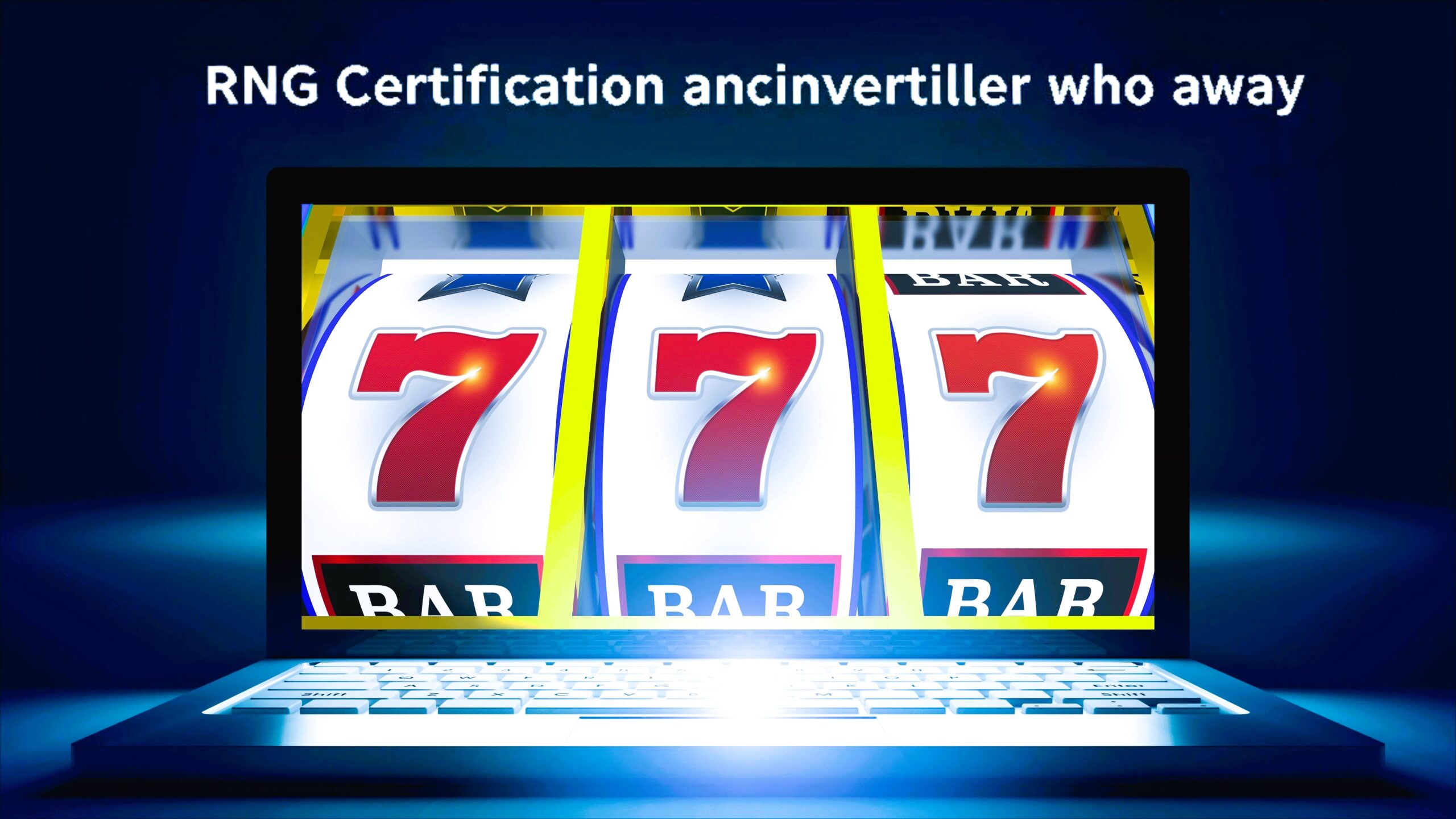If you’ve ever dipped your toes into the world of Indian online casinos, you might have wondered, “Are these games truly fair?” Or maybe, “How can I be sure that the outcomes aren’t rigged?” Well, these questions are not just common—they’re essential. In the fast-growing Indian online gambling scene, ensuring game fairness and the role of RNG (Random Number Generator) certification is crucial. Let’s dive deep into what fairness means here, how RNGs play their role, and why certifications matter to every player like you and me.
What Is Game Fairness in Online Casinos?
Game fairness in online casinos refers to the assurance that every game outcome is completely random and impartial, giving all players the same chance of winning. It eliminates any form of bias or manipulation, making sure that the casino does not interfere with game results to increase its profits unfairly. This fairness is achieved through the use of advanced algorithms like Random Number Generators (RNGs), which simulate the unpredictability of physical gaming elements such as dice rolls, card shuffles, or spinning wheels. Essentially, it’s the digital equivalent of flipping a coin—with no way to predict or influence the result.
The concept of fairness is especially important in a virtual environment, where you can’t see the cards being dealt or the roulette wheel spinning in front of you. Since players have to trust what they see on their screens, fairness becomes the foundation upon which their entire gaming experience is built. A truly fair casino doesn’t just promise transparency—it builds it into the very mechanics of its games, which are frequently tested by third-party auditors. These tests are designed to ensure that the software behaves exactly as advertised, with no hidden patterns or biases.
Online casinos that take fairness seriously usually submit their games for external verification and display certifications from independent testing agencies such as eCOGRA, iTech Labs, or GLI. These organizations test and certify the integrity of game algorithms, verifying that they meet international standards of randomness and fairness. Certified casinos often publish these results on their websites or in their terms and conditions, giving players an extra layer of reassurance. When you see those logos, you know the games you’re playing have been checked for fairness by someone who isn’t profiting from your bets.
Ultimately, game fairness protects both the casino’s reputation and the player’s experience. Without fairness, online gambling would lose its legitimacy and become a game of manipulation rather than chance. In a market like India, where gambling laws vary by state and consumer protection isn’t always consistent, fair gaming practices are even more critical. For Indian players, choosing platforms that highlight their commitment to fairness isn’t just smart—it’s necessary for a safe and enjoyable gaming experience.
Why Does Fairness Matter to Indian Players?
| Factor | Impact Without Fairness | Impact With Fairness | Why It Matters in India | Player Benefit |
| Game Outcome | May be manipulated or predetermined | Truly random and based on RNG | Legal loopholes may allow shady platforms | Equal winning chances for all players |
| Trust in Platform | Very low due to lack of transparency | Higher trust when certified by recognized RNG testers | Indian players rely heavily on platform reputation | Safer and more confident gameplay |
| Legal Protection | Weak or non-existent in unregulated sites | Stronger when aligned with international certifications | No centralized regulation across Indian states | Reduced risk of fraud or unfair loss |
| Long-term Engagement | Players avoid the platform if they suspect foul play | Higher retention due to perceived honesty | Word-of-mouth is critical in Indian gaming communities | More enjoyable and repeatable gaming experience |
| Financial Risk | Higher—players may lose money unfairly | Lower—fair games maintain expected RTP rates | Players often deposit without knowing site credentials | Protection of funds and transparent payout ratios |
What is RNG (Random Number Generator)?
At the core of every online casino game lies the Random Number Generator, better known as RNG. It’s the invisible engine that powers fairness, acting like a digital magician behind the curtain. You don’t see it, but it’s working constantly—deciding where the roulette ball lands, what card is dealt, or what symbols show up on your slot machine reels. Without RNGs, online casinos couldn’t function fairly or legitimately. But what exactly does an RNG do? Let’s break it down with a detailed list of its key features, functions, and importance.
- Generates Random Outcomes Instantly
RNGs produce sequences of numbers that correspond to game events (like card draws or reel spins) at lightning speed, often thousands of times per second, ensuring instant and spontaneous gameplay decisions. - Removes Human Bias
There’s no dealer, croupier, or human shuffler involved in most online games—RNGs eliminate the possibility of error or intentional manipulation, creating an unbiased system. - Built on Complex Algorithms
RNGs aren’t just simple number pickers; they’re based on advanced mathematical formulas and cryptographic principles designed to simulate randomness with precision. - Ensures Every Game Round Is Independent
Each game round, whether it’s a spin, shuffle, or dice roll, is not influenced by any past outcomes. There’s no memory—every result is brand new and isolated. - Imitates Physical Randomness
RNGs replicate what happens in real-life gaming environments—like rolling dice or shuffling cards—by using number sets and probability formulas to mimic natural randomness. - Protects Against Predictability
A well-designed RNG makes it virtually impossible to forecast the outcome of the next round. Even the most skilled programmer or hacker can’t guess the result without compromising the system. - Used Across All Game Types
Whether it’s online slots, blackjack, roulette, Teen Patti, or baccarat—RNGs are used in all non-live dealer games to determine outcomes fairly and uniformly. - Evaluated and Certified by Testing Agencies
Reputable casinos use RNG software that’s rigorously tested by independent bodies like eCOGRA, iTech Labs, or GLI to confirm the system is fair and secure. - Operates Continuously in the Background
RNGs don’t wait for you to press “Spin.” They’re continuously generating numbers in the background—even when you’re not playing—so when you act, it grabs the next number in sequence instantly. - Key to Game Fairness and RTP Accuracy
RNGs help maintain the expected Return to Player (RTP) rate of a game by ensuring a balanced distribution of wins and losses over time, according to statistical probability.
How RNG Works in Online Casinos
When you play an online casino game—whether it’s a slot, blackjack, or roulette—the outcome of each round is determined by a Random Number Generator (RNG). The moment you click a button or make a selection, the system instantly consults the RNG to decide what result to display. For example, in an online slot, the RNG generates a random number sequence that corresponds to the position of symbols on the reels. These symbols then appear on your screen as the final result of your spin. This entire process takes place in just milliseconds, so quickly that there’s no possible way for you or the casino to influence it.
One of the most important aspects of RNG operation is independence. Every result is entirely separate from the one before or after it. That means just because you lost ten times in a row doesn’t make your next spin more likely to be a win—or a loss. It’s all random. The RNG doesn’t “remember” your past actions, and the software doesn’t build up to a jackpot or payout based on how long you’ve been playing. This randomness ensures fairness and helps the game maintain its advertised payout percentage over time, known as the Return to Player (RTP).
To keep this system truly fair, the RNG is designed to operate continuously, generating numbers even when no one is playing. That way, when you hit “Spin,” “Deal,” or place a bet, it doesn’t wait to calculate something—your action simply pulls the next number from a constantly updating stream. This process mimics real-world randomness, like shuffling a deck of cards or spinning a physical roulette wheel. It’s also designed to be cryptographically secure, meaning that the sequences generated can’t be predicted or manipulated by hackers or even the casino operators themselves.
Behind the scenes, licensed and certified casinos use third-party auditing agencies to regularly test and verify the RNG software. These agencies run complex statistical analyses to ensure that the outcomes are genuinely random and not favoring the house more than what’s mathematically allowed. If even slight irregularities are found, the casino can lose its license or certification. So, when you’re playing on a properly regulated platform, you’re engaging with a system that has been scrutinized and approved by technical experts—offering you the best possible assurance that what you’re seeing is truly based on chance.
Why RNG is Vital for Fairness
| Aspect of Gameplay | Without RNG | With RNG | Impact on Players | Importance to Fair Play |
| Game Outcomes | Potentially manipulated or repetitive | Entirely unpredictable and independent | Players face unfair losses or wins skewed toward house | Ensures randomness and integrity |
| Player Trust | Severely diminished | Strongly reinforced | Doubt in platform credibility | Builds confidence and long-term loyalty |
| Casino Reputation | Damaged due to unfair practices | Enhanced through certified fairness | Players avoid shady platforms | Encourages ethical gaming standards |
| Competitive Edge | Tilts in favor of the house or specific players | Equal for all players | Skilled or lucky players may be unfairly disadvantaged | Maintains level playing field |
| Legal and Regulatory Status | High risk of violation and bans | Compliant with international licensing standards | May face legal action or blacklisting | Aligns with responsible gambling legislation |
RNG Certification: What Does It Mean?
Just because a casino claims to use RNG doesn’t automatically make it trustworthy. Many platforms boast about having “random outcomes,” but without proper certification, those claims mean very little. RNG certification is the process where independent, specialized testing agencies evaluate a casino’s RNG software to ensure it operates fairly, securely, and in a truly random manner. It’s like giving the game a clean bill of health—proof that it plays by the rules and doesn’t secretly tilt the odds. Below is a detailed list explaining what RNG certification really involves and why it’s so essential for online gaming.
- Verifies True Randomness of Results
Certification ensures that the numbers generated by the RNG are genuinely unpredictable, with no hidden patterns or algorithms that could influence results unfairly. - Confirms Statistical Integrity
RNG testing agencies run millions of simulated game rounds to analyze the distribution of outcomes and confirm that they align with the expected probabilities of the game. - Eliminates Any Predictability
The certification process checks whether future outcomes can be guessed or manipulated based on previous results—if they can, the RNG fails the test. - Prevents Casino Manipulation
Certified RNGs are sealed and encrypted, making it impossible for casinos or developers to secretly alter the code to give themselves an edge after testing. - Meets International Standards
Certified RNGs must comply with global regulations such as ISO/IEC standards for software and security, which helps ensure consistent fairness across different jurisdictions. - Conducted by Trusted Third-Party Labs
RNG certification is not done in-house. Independent organizations like eCOGRA, iTech Labs, GLI, and TST perform the evaluation, maintaining objectivity and credibility. - Includes Security and Tamper-Resistance Testing
RNG certification doesn’t only test randomness; it also examines the software’s resistance to hacking, tampering, or backdoor interference. - Required by Licensing Authorities
Many gambling regulators around the world—including the UK Gambling Commission and Malta Gaming Authority—require RNG certification before issuing or renewing a license. - Often Involves Ongoing Monitoring
Certified RNGs are not just tested once. They are periodically audited to ensure continued compliance, especially after software updates or new game releases. - Transparency for Players
Casinos with certified RNGs often display test results or audit certificates on their websites, allowing players to verify the integrity of the games they’re playing.




